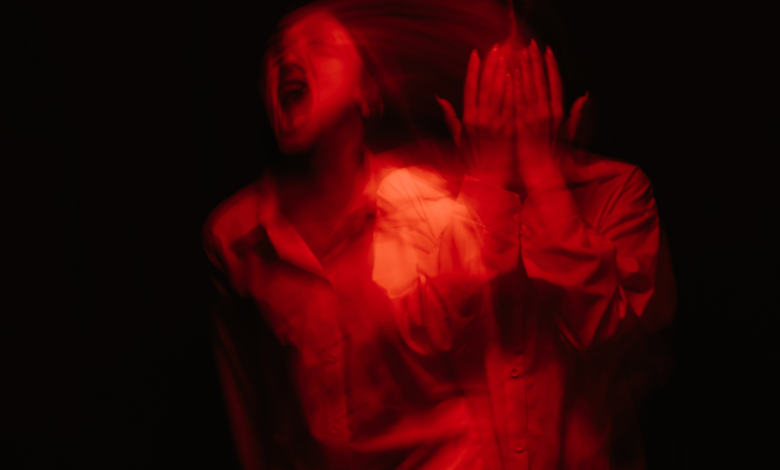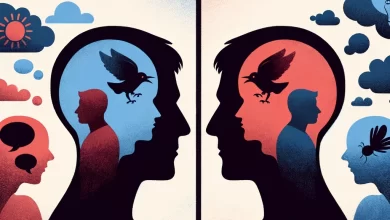Understanding Schizoaffective Disorder FAQs

Do you know what it feels like to experience a combination of symptoms from both schizophrenia and bipolar disorder? Schizoaffective disorder is a complex mental health condition that intertwines these two disorders, affecting a person’s moods and thoughts.
While the exact cause of schizoaffective disorder remains unknown, researchers believe that a combination of genetic and environmental factors play a role in its development. But how exactly is it diagnosed, and what are the treatment options available?
In this article, we will explore the frequently asked questions surrounding schizoaffective disorder, from its symptoms to its management. Whether you’re seeking answers for yourself or a loved one, join us as we dive into the depths of this lesser-known mental health disorder.
Key Takeaways:
- Schizoaffective disorder is a mental health condition characterized by symptoms of both schizophrenia and bipolar disorder.
- Diagnosis involves a comprehensive mental health assessment conducted by a psychiatrist.
- Treatment may include a combination of medication, therapy, and personalized strategies for self-management.
- Support groups can provide a sense of community and shared experiences for individuals with schizoaffective disorder.
- With the right treatment and support, individuals with schizoaffective disorder can lead fulfilling lives.
Symptoms of Schizoaffective Disorder
Schizoaffective disorder is a complex mental health condition that combines symptoms of both schizophrenia and bipolar disorder. These symptoms can vary in severity and can significantly impact an individual’s daily life and functioning. It is important for individuals experiencing symptoms of schizoaffective disorder to seek a diagnosis and appropriate treatment from a qualified mental health professional.
Schizophrenia Symptoms:
- Hallucinations
- Delusions
- Disorganized speech
- Disorganized behavior
- Catatonic behavior
- Negative symptoms
Bipolar Disorder Symptoms:
- Manic symptoms (e.g., increased energy and irritability)
- Depressive symptoms (e.g., low mood and lack of interest in activities)
Individuals with schizoaffective disorder may experience a combination of these symptoms, which can make diagnosis and treatment challenging. Seeking professional help is crucial for an accurate diagnosis and the development of an appropriate treatment plan tailored to the individual’s needs.
Diagnosis of Schizoaffective Disorder
Diagnosis of schizoaffective disorder involves a comprehensive mental health assessment conducted by a psychiatrist. The psychiatrist will use diagnostic manuals such as the International Classification of Diseases (ICD-10) or the Diagnostic and Statistical Manual (DSM-5) to help determine a diagnosis.
To receive a diagnosis of schizoaffective disorder, individuals must exhibit a combination of symptoms from both psychosis and bipolar disorder. These symptoms should be present for at least two weeks and significantly impact daily functioning.
It may take multiple assessments to reach a definitive diagnosis of schizoaffective disorder.
Types and Causes of Schizoaffective Disorder
Schizoaffective disorder is a complex mental health condition that can be classified into three main types. These types include:
- Manic Type: This type involves the simultaneous presence of symptoms of both schizophrenia and mania. Individuals with the manic type may experience periods of elevated mood, increased energy, and irritability, along with symptoms such as hallucinations and delusions.
- Depressive Type: The depressive type of schizoaffective disorder is characterized by symptoms of both schizophrenia and depression occurring together. Individuals may experience a persistent low mood, loss of interest in activities, changes in appetite, and difficulty sleeping.
- Mixed Type: The mixed type of schizoaffective disorder involves symptoms of schizophrenia, depression, and mania occurring during a period of illness. Individuals may experience a combination of symptoms, including hallucinations, delusions, mood swings, and changes in behavior.
The exact causes of schizoaffective disorder are not fully understood, but it is believed to result from a combination of genetic and environmental factors. Genetic factors can play a role, as individuals with a family history of schizophrenia, schizoaffective disorder, or bipolar disorder may have an increased risk of developing the condition. Environmental factors, such as childhood trauma, high levels of stress, or substance abuse, can also contribute to the development of schizoaffective disorder.
Treatment Options for Schizoaffective Disorder
Treatment for schizoaffective disorder typically involves a combination of medication and therapy. Medications, such as antipsychotics, mood stabilizers, and antidepressants, may be prescribed to manage symptoms. Therapy, such as cognitive-behavioral therapy (CBT), individual therapy, and group therapy, can help individuals learn coping strategies, improve functioning, and manage their symptoms.
It is important for individuals with schizoaffective disorder to work closely with their mental health team to find the most effective treatment plan for their specific needs. Regular monitoring and adjustments to treatment may be necessary.
Managing Schizoaffective Disorder
Managing schizoaffective disorder involves developing strategies to cope with symptoms and improve overall well-being. It requires a comprehensive approach that includes medication, therapy, self-care activities, and healthy lifestyle habits.
Adhering to medication regimens is essential for effectively managing schizoaffective disorder. Medications prescribed by a qualified healthcare professional can help control symptoms and stabilize mood. It is crucial to follow the prescribed dosage and regularly communicate with the healthcare provider to monitor and adjust treatment as needed.
Attending therapy sessions is another critical aspect of managing schizoaffective disorder. Therapy, such as cognitive-behavioral therapy (CBT), can help individuals develop coping skills, challenge negative thought patterns, and improve their overall functioning. Individual therapy provides a safe space to process experiences and emotions related to the disorder, while group therapy offers support and connection with others facing similar challenges.
Engaging in self-care activities is vital for overall well-being. These activities can include practicing mindfulness, engaging in hobbies and interests, setting aside time for relaxation and self-reflection, and maintaining a balanced diet. Regular exercise, such as walking, swimming, or yoga, can also have positive effects on both physical and mental health.
Implementing healthy lifestyle habits is crucial for managing schizoaffective disorder. Adequate sleep, around 7-9 hours per night, is essential for mental health. Establishing a consistent sleep routine and creating a relaxing environment can promote better sleep quality. Avoiding substances such as alcohol and recreational drugs is also key, as they can worsen symptoms and interfere with medication effectiveness.
Identifying triggers and stressors that may worsen symptoms is an important part of managing schizoaffective disorder. This can include specific situations, people, or environments. Once identified, it is essential to develop personalized strategies to manage and minimize exposure to these triggers. This may involve setting boundaries, seeking support when needed, and practicing stress-management techniques, such as deep breathing or journaling.
Support groups can be a valuable resource for individuals managing schizoaffective disorder. Connecting with others who have similar experiences can provide a sense of community, understanding, and shared knowledge. Support groups can offer emotional support, practical advice, and a space to discuss challenges and successes.
It is important for individuals with schizoaffective disorder to proactively manage their condition and seek support from friends, family, and mental health professionals. With the right strategies and support system in place, individuals with schizoaffective disorder can effectively manage their symptoms and lead fulfilling lives.
Schizoaffective Disorder Medication
Schizoaffective disorder is a complex mental health condition that requires a comprehensive treatment approach. Medication plays a crucial role in managing symptoms and promoting stability for individuals with schizoaffective disorder. Here are some commonly prescribed medications used in the treatment of schizoaffective disorder:
Antipsychotic medications: These medications are the mainstay of treatment for managing psychotic symptoms such as hallucinations and delusions. They work by blocking dopamine receptors in the brain and helping to regulate brain function. Examples include:
- Risperidone (Risperdal)
- Olanzapine (Zyprexa)
- Quetiapine (Seroquel)
Mood stabilizers: Mood stabilizers are used to manage and prevent extreme mood swings associated with bipolar symptoms. They help stabilize mood and reduce the risk of manic or depressive episodes. Examples include:
- Lithium
- Valproate (Depakote)
- Lamotrigine (Lamictal)
Antidepressants: Antidepressants may be prescribed to alleviate depressive symptoms experienced by individuals with schizoaffective disorder. They work by increasing the levels of certain neurotransmitters in the brain. Examples include:
- Selective serotonin reuptake inhibitors (SSRIs) such as fluoxetine (Prozac) and sertraline (Zoloft)
- Tricyclic antidepressants (TCAs) such as amitriptyline (Elavil)
It’s important to note that the specific medication regimen will vary based on individual needs and responses to treatment. Collaborating closely with a psychiatrist is essential in finding the most effective medication(s) and dosage(s) for each individual’s unique situation.
| Medication Type | Examples |
|---|---|
| Antipsychotic medications | Risperidone (Risperdal), Olanzapine (Zyprexa), Quetiapine (Seroquel) |
| Mood stabilizers | Lithium, Valproate (Depakote), Lamotrigine (Lamictal) |
| Antidepressants | Fluoxetine (Prozac), Sertraline (Zoloft), Amitriptyline (Elavil) |
Therapy for Schizoaffective Disorder
Therapy is an essential component of the treatment plan for individuals with schizoaffective disorder. One of the most commonly used therapeutic approaches is Cognitive-Behavioral Therapy (CBT). Through CBT, individuals can identify and challenge negative thought patterns, develop effective coping skills, and improve overall functioning.
Individual therapy provides a safe and supportive space for individuals to process their experiences, emotions, and challenges related to schizoaffective disorder. In these one-on-one sessions, individuals can work closely with a qualified therapist to address specific concerns, set personal goals, and develop strategies for managing symptoms.
Group therapy can be immensely beneficial for individuals with schizoaffective disorder. It offers an opportunity to connect with others who share similar experiences, providing mutual support and a sense of belonging. Group therapy sessions are facilitated by trained professionals who guide discussions and activities aimed at improving social skills, enhancing self-esteem, and reducing feelings of isolation.
“Therapy can help individuals develop strategies to manage symptoms, improve relationships, and enhance overall quality of life.”
Benefits of Therapy for Schizoaffective Disorder
- Learning effective coping skills to manage symptoms
- Gaining insight into the disorder and its impact
- Developing strategies for improving relationships and communication
- Exploring and addressing underlying emotional issues
- Enhancing self-awareness and self-esteem
- Building a supportive network through group therapy
Therapy provides individuals with schizoaffective disorder the opportunity to explore their thoughts, emotions, and behaviors in a safe and non-judgmental environment. It can empower individuals to take an active role in their treatment and recovery journey, fostering a sense of control and resilience.
| Types of Therapy for Schizoaffective Disorder | Description |
|---|---|
| Cognitive-Behavioral Therapy (CBT) | Focuses on identifying and challenging negative thought patterns and behaviors, replacing them with more positive and adaptive ones. |
| Individual Therapy | Provides personalized support and guidance to address individual concerns, explore emotions, and develop coping strategies. |
| Group Therapy | Offers a supportive and accepting environment where individuals can share experiences, learn from others, and develop interpersonal skills. |
| Family Therapy | Involves family members in the therapy process to improve communication, understanding, and support for the individual with schizoaffective disorder. |
Choosing the right therapy approach depends on individual needs and preferences. It is essential to work with a qualified mental health professional who can help determine the most appropriate and effective therapy for schizoaffective disorder.
Conclusion
Schizoaffective disorder, a complex mental health condition that combines symptoms of schizophrenia and bipolar disorder, requires a comprehensive treatment approach. By incorporating medication, therapy, and effective self-management strategies, individuals with schizoaffective disorder can better manage their symptoms and improve their overall well-being.
One valuable resource for individuals with schizoaffective disorder is schizoaffective disorder support groups. These groups provide a sense of community, understanding, and shared experiences, making individuals feel less alone in their journey. Connecting with others who face similar challenges can foster a supportive environment and offer valuable insights.
In addition to support groups, seeking professional help and connecting with other support networks is crucial for individuals with schizoaffective disorder. Prioritizing mental health, taking prescribed medication, attending therapy sessions, and implementing effective self-care strategies can significantly contribute to an improved quality of life. With the right treatment, support, and personal management, individuals with schizoaffective disorder can lead fulfilling lives.






